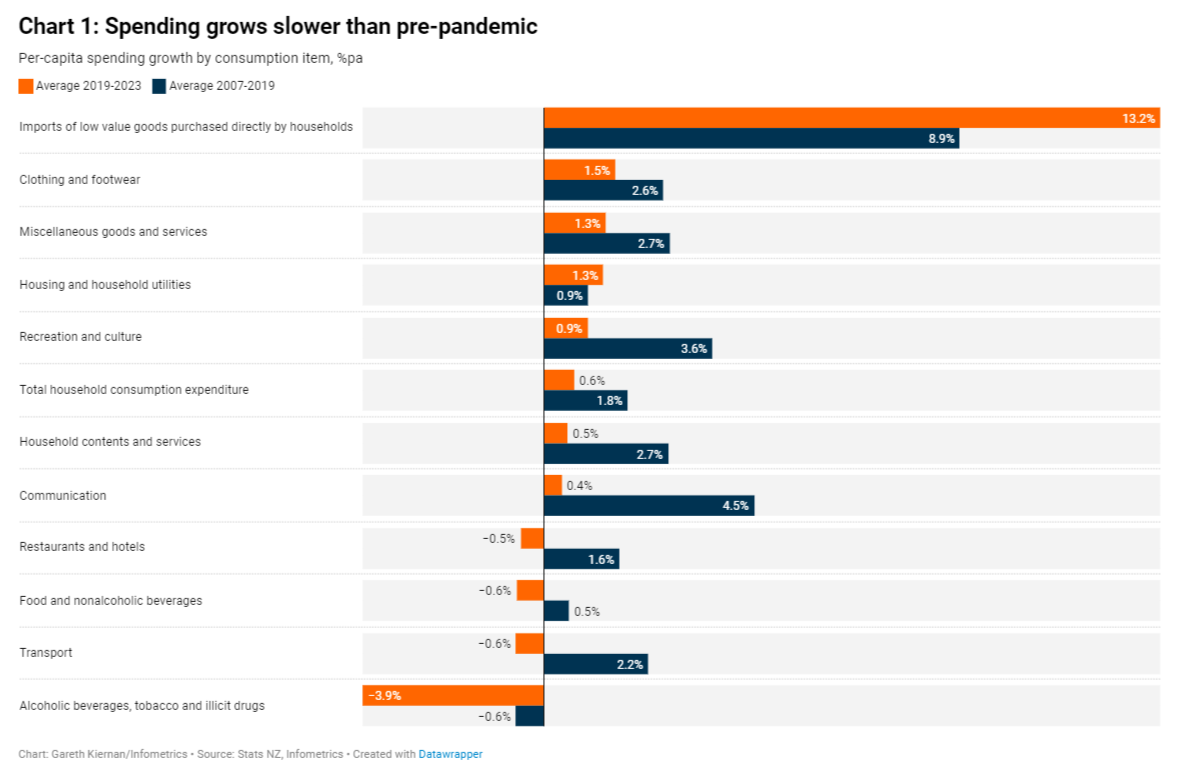"Underneath the rapid population growth, all is not well," expert says

Gareth Kiernan (pictured above), chief forecaster and director at Infometrics, shed light on the discomforting truth behind the country's fourth contraction in five quarters, emphasising that the recession’s necessity doesn't ease the burden on struggling households.
“Struggling households don’t care about the truth of these statements,” Kiernan said in an opinion piece for Infometrics. He likened unsolicited economic advice to an unwanted gym membership.
New Zealand has entered a double-dip recession with its economy shrinking for two consecutive quarters, as Stats NZ reported a 0.1% GDP decrease in December, following a 0.3% drop in September.
Read about New Zealand entering into a double-dip recession here.
Household spending hits a low
Despite fluctuations due to the pandemic, Kiernan pointed out a significant slowdown in household spending growth since the end of 2019. The pain is now more acute, with steep declines in spending on recreation, clothing, and dining out.
“Of the 11 types of consumption spending... there are now only two that have grown faster since 2020 on a per-capita basis than 2007-2019: housing and household utilities, and 'imports of low value goods directly by households,’” Kiernan said.
More challenges ahead for households
Kiernan warned that the situation may worsen for households as many still face the shock of transitioning from low fixed mortgage rates to significantly higher current rates. He also highlighted the contraction in business investment and rising job losses, predicting tougher times ahead in the job market.
Contributing to the economic strain are both the private sector’s investment caution and the government’s efficiency measures, with Kiernan observing a notable impact on public sector employment and business sales.
Limited avenues for relief
With fiscal policy unlikely to soften the blow and monetary policy remaining tight, Kiernan suggested the export sector's challenges further complicate recovery prospects. He expressed concern over stagnant tourist arrivals and pressures on agricultural and manufactured exports.
Kiernan concluded with a sobering outlook, questioning the potential for a “soft landing” and cautioning against optimism based solely on headline economic numbers.
“Underneath the rapid population growth, all is not well,” he said.
Get the hottest and freshest mortgage news delivered right into your inbox. Subscribe now to our FREE daily newsletter.



